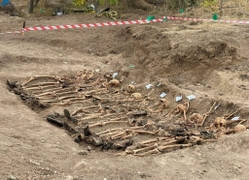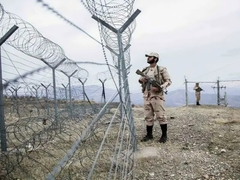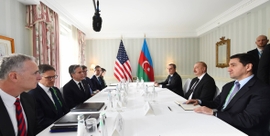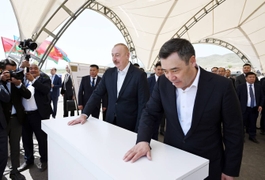President Ebrahim Raisi has stated that Iran “does not tolerate the presence of terrorist groups” near its borders.
In a meeting with visiting Iraqi Foreign Minister Fuad Hussein on September 13, the Iranian president also stressed the necessity of the “full implementation” of a security agreement signed with Iraq in March.
Raisi also highlighted that Iran “did not hesitate to help defend Iraq” when it was under attack from the Islamic State group, adding that it “proved that Iran is Iraq's friend in difficult times.”
In turn, the Iraqi foreign minister said that Baghdad was committed to agreements with Tehran and would not allow any movement or group to “threaten and trespass on the borders of its neighbors, especially the Islamic Republic of Iran.”
Earlier on the same day, Hussein announced in a joint news conference with his Iranian counterpart Hossein Amir-Abdollahian that the militant groups would be transferred to camps supervised by the United Nations. The Iraqi minister said that the country’s constitution does not allow any group to use Iraqi territory to attack other countries, adding that the security agreement between the two neighboring countries is based on Iraq’s constitution. Amir-Abdollahian, in turn, told reporters that “efforts are underway to disarm them and fully implement the clauses of the security agreement between the two countries.”
In March, Iran and Iraq signed a security deal to protect their shared borders, which was meant to “end the illegal presence” of armed Kurdish groups near Iran’s borders. Iraq had until September 19 to disarm opposition Iranian Kurdish groups based in Iraqi Kurdistan under the security deal.
Iraq has already spent over $200 million to carry out the security deal and deployed more than 3,000 troops along the border with Iran, including in the Iraqi Kurdistan region.
Iranian authorities regularly raise security concerns about Iranian Kurdish opposition groups based in Iraqi Kurdistan, accusing them of “fomenting unrest, fanning separatist sentiments, and cooperating with Israel.” The Islamic Revolution Guards Corps has on several occasions shelled locations linked to the Kurdish groups in Iraq and has targeted sites it claims are used by Israeli operatives.
On September 13, the commander of the IRGC base in the north-west, Brig Gen Ali Akbar Pourjamshidian, said that the base had seized “the largest” shipment of weapons and equipment in the country’s north-west that were supposedly meant to be used for “rioting.”
In a phone conversation with Iraqi Prime Minister Mohammed Shiaa al-Sudani on September 9, President Raisi warned Iraq of “intolerable” activities by “terrorist and separatist” groups in the region.
On September 6, the Komala Kurdistan’s Organization of the Communist Party of Iran, which is active throughout the Iran-Iraq border, issued a statement together with its allies, condemning “Tehran’s threats for disarming opposition forces in Iraqi Kurdistan.” The statement said that the disarmament would help Iran “intensify terrorism, intervention, and instability” for a new phase of its rivalry in Iraq and the Middle East. It added that Iran intended to carry out its policies by using “the influence of Islamic Shia groups in Iraq’s power structure.”
The activities of some Kurdish groups were limited to scattered guerrilla operations inside Iran, while others rejected an armed struggle, arguing this only helped “Tehran militarize the region and boost its dominance.”


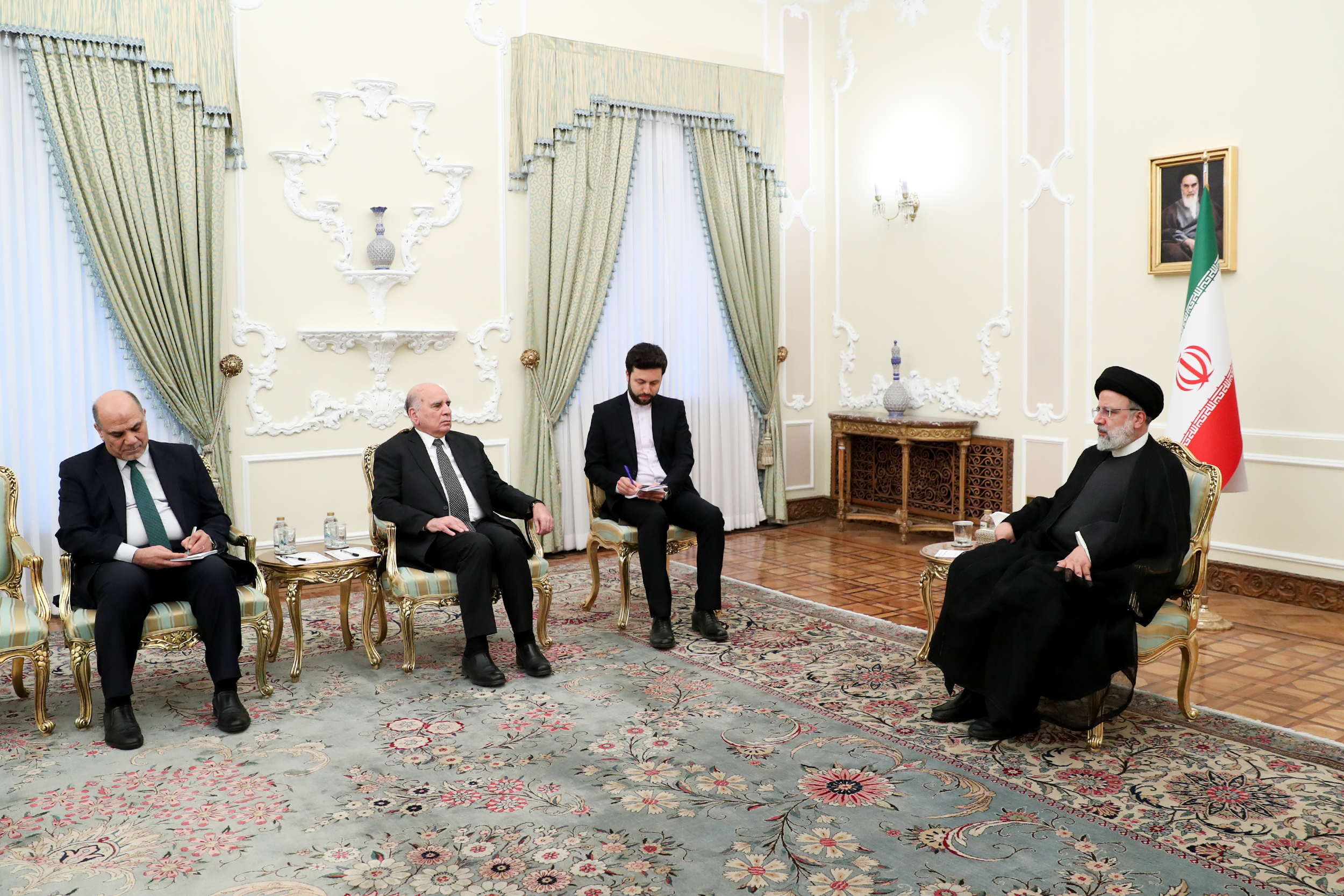




 Kyrgyzstan has joined the extensive reconstruction efforts in the Karabakh region of Azerbaijan, after a series of mega initiatives were launched b...
Kyrgyzstan has joined the extensive reconstruction efforts in the Karabakh region of Azerbaijan, after a series of mega initiatives were launched b...
 Turkmen President Serdar Berdimuhamedow and British Secretary of State for Foreign Affairs, Commonwealth Affairs, and Development David Cameron dis...
Turkmen President Serdar Berdimuhamedow and British Secretary of State for Foreign Affairs, Commonwealth Affairs, and Development David Cameron dis...
 A draft resolution aimed at preventing the development and deployment of weapons of mass destruction (WMDs) in outer space, co-sponsored by Japan a...
A draft resolution aimed at preventing the development and deployment of weapons of mass destruction (WMDs) in outer space, co-sponsored by Japan a...
 Russia and Ukraine have engaged in direct negotiations facilitated by Qatar to address the exchange of children affected by the ongoing conflict.
Russia and Ukraine have engaged in direct negotiations facilitated by Qatar to address the exchange of children affected by the ongoing conflict.
